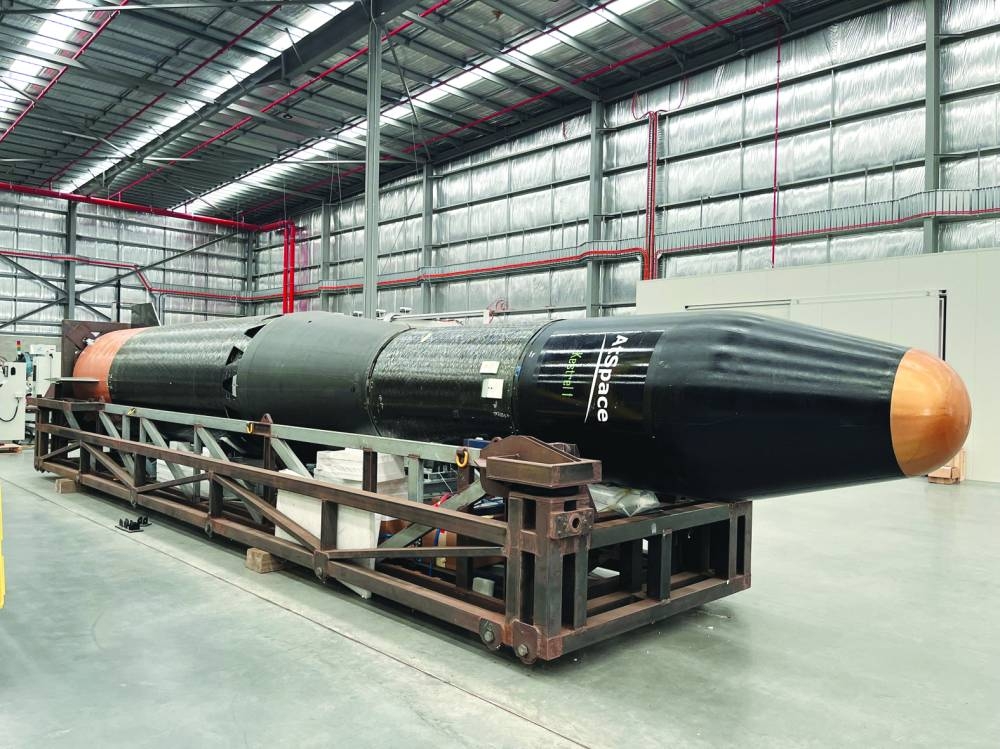A Taiwanese startup aims to become the first foreign firm to launch a rocket from Japan by early next year, part of a plan industry advocates say will aid Tokyo’s ambitions of becoming a space hub in Asia.
The planned suborbital launch by TiSpace has faced regulatory hurdles and delays amid questions over whether Japan should embrace overseas business as part of its effort to double the size of its 4tn yen ($26bn) space industry over the next decade.
The private firm, co-founded in 2016 by current and former officials from Taiwan’s space agency, has not had a successful launch. Its most recent attempt to fly a rocket, via its sister company AtSpace in Australia in 2022, failed because of an oxidiser leak. The rocket to be tested in Japan is a different design.
“This (planned launch) should be a very good case for the Japanese government,” TiSpace chairman Yen-sen Chen told Reuters in an interview. “If that goes smoothly, then you will attract more customers from other countries.” He said the firm is waiting on one last regulatory approval, a radio permit that will enable the launch of the company’s 12m (39ft) sounding rocket, which he hopes will occur by early 2025. A sounding rocket can reach space but does not achieve orbit.
Some analysts have said launching a Taiwanese rocket in Japan might draw the attention of China, which claims Taiwan as its own over the strong objections of the government in Taipei, and monitors the island’s advancements in missile-related technologies. But so far, Chen said, he had not heard any concerns.
China’s foreign ministry said it was “not aware of the relevant circumstances” of the launch.
Japan’s Cabinet Office said “free economic and research activities are guaranteed in Japan within the scope of laws and regulations”. An official from Taiwan’s de facto embassy in Japan met with TiSpace in March 2023 in what the embassy called a “courtesy visit” but the embassy declined to comment further, saying the launch was a private-sector matter.
TiSpace is the only Taiwanese company attempting launches. One of the company’s other co-founders, Wu Jong-shinn, is now the head of Taiwan’s space agency. The agency declined to comment on its relationship with TiSpace and said all its launch services are conducted through public tender.
The company’s endeavour has won support among Japanese space businesses, especially in the remote agricultural town of Taiki, on the northern island of Hokkaido, which will host the launch. Officials and experts cite the benefits of inviting foreign companies.
Yuko Nakagawa, a ruling-party lawmaker representing Taiki and neighbouring communities, said TiSpace’s project was “a symbol of Taiwan-Japan friendship” and a tailwind for an international business complex that local officials call a “space Silicon Valley”.
Japan wants its private space industry to be worth more than $50bn by the early 2030s, launch 30 rockets a year and become Asia’s space transportation hub, according to the latest government plans.
Jun Kazeki, the top official overseeing Japan’s space strategy in the Cabinet Office, declined to comment on TiSpace’s plans. There may be “future possibilities to utilise overseas transportation technologies”, but Japanese rockets are the government’s priority, he said.
Government launches are typically carried out by Japanese-built boosters such as the Mitsubishi Heavy Industries H3. Private satellite operators often use foreign launch companies such as SpaceX and ArianeGroup outside Japan.
A senior Japanese official involved in the space sector cautioned that a foreign company launching orbital payloads from Japan would require close government scrutiny and high regulatory hurdles.
Because Japan’s Space Activities Act does not govern sub-orbital launches such as TiSpace’s, the central government does not need to give final approval for the launch. Tokyo plans to change that law to encompass suborbital flights and reusable rockets, but revisions are expected to take years.
Motoko Mizuno, an opposition lawmaker and former official at JAXA, the country’s space agency, said she was cautious about Japan opening up to foreign companies, with which local launchers might not be able to compete on price.
Japan is negotiating a space technology safeguards agreement with the US that could also pave the way for US commercial launches in Japan.
Although JAXA has launched domestically developed rockets for decades, the country’s private rocket industry is nascent.
Space One, backed by Aerospace giant IHI, saw its rocket blow up during its inaugural launch in March. Taiki-based Interstellar Technologies in 2019 became the first Japanese firm to have a sounding rocket reach space but has not followed up with an orbital launch.
Yoshinori Odagiri, the chief executive of Space Cotan, which operates the Hokkaido Spaceport in Taiki, said a couple of European companies have expressed interest in its launch complex.
Tadashi Morimitsu, a local official in southwestern Oita prefecture, another budding space hub in Japan, which is partnering with US spaceplane company Sierra Space, said TiSpace’s progress in Hokkaido encapsulates a “welcome phenomenon” of overseas space businesses using Japanese spaceports.
Globally, more than 50 spaceports are being built, but “they may end up with maybe five to 10 which can be truly successful and self sustaining in the long term”, said Boston Consulting Group principal Alessio Bonucci.
If TiSpace’s test launch is successful, the company said it plans to expand its manufacturing capacity in Japan to serve Japanese customers.
One such potential client, Hokkaido-based Letara, has already inquired about whether TiSpace can carry its satellite propulsion system to space for testing.
“We don’t ask if the company is domestic or foreign, as long as they can launch,” said Letara co-founder Shota Hirai. – Reuters

